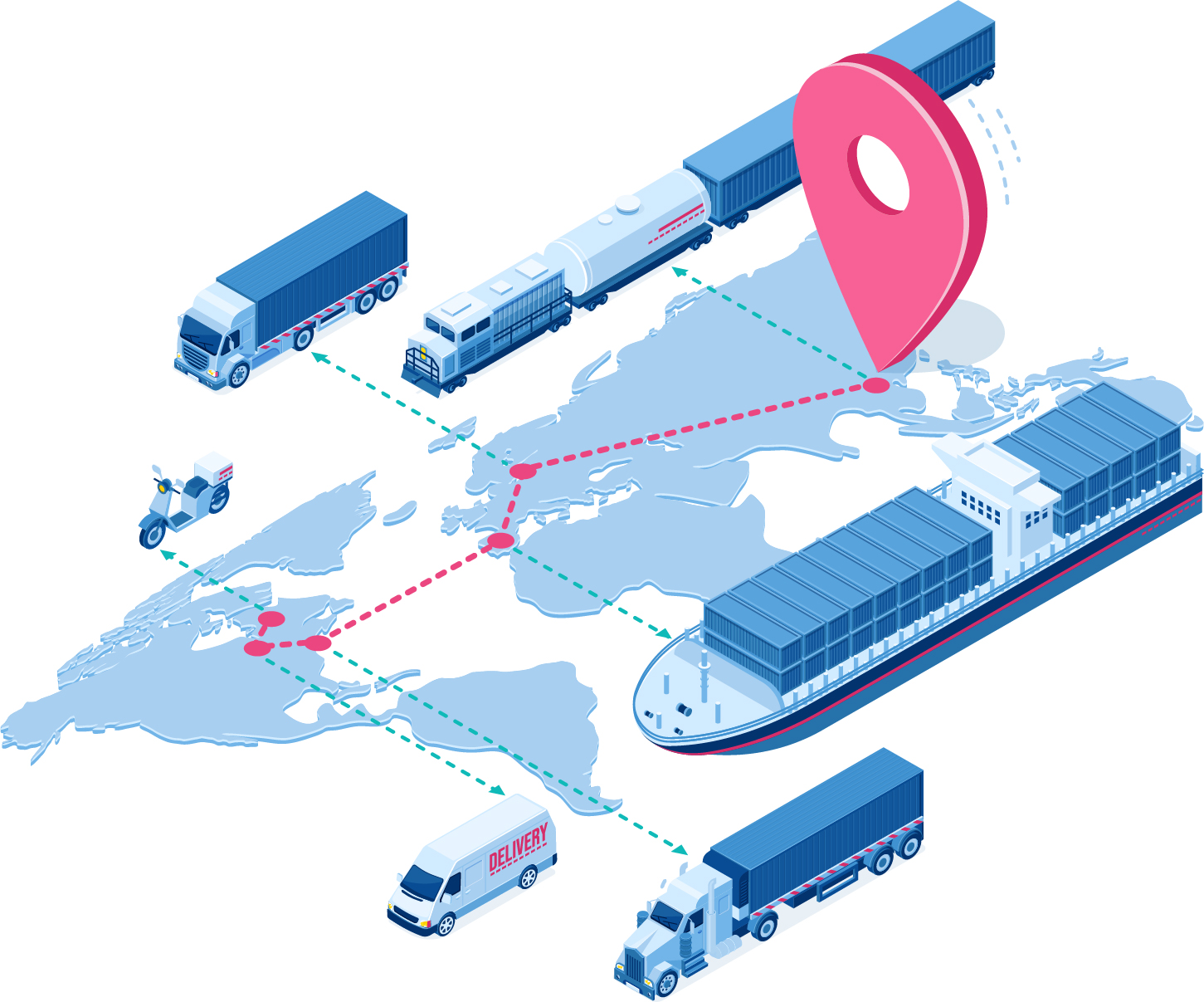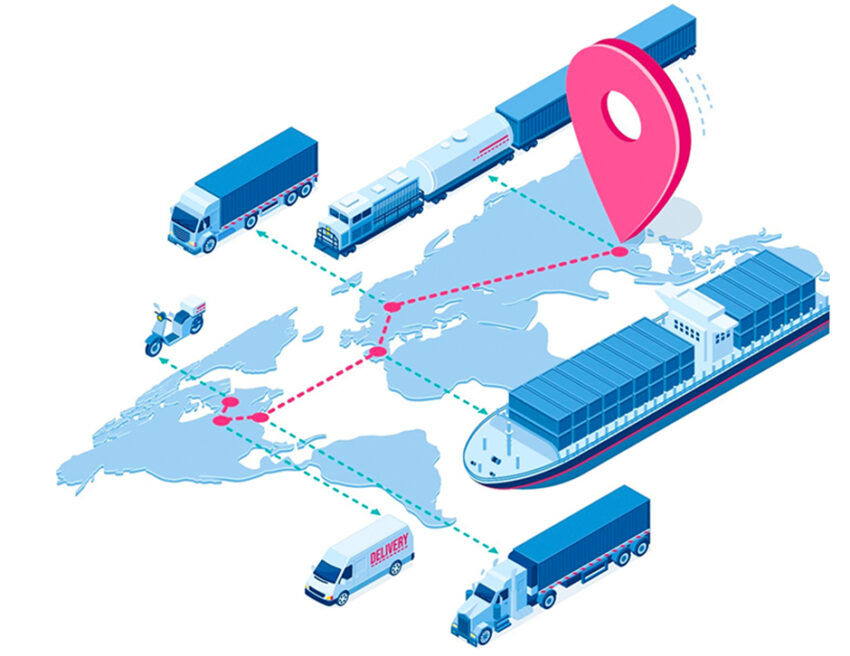After centuries of dependence on manual processes, the container shipping industry is finally riding the digital wave. Although the freight forwarding industry has been quickly adopting digital trends, one sector that is relatively backward in this regard is the sea freight shipping sector. However, in the past few years, the container shipping sector is resorting to the use of IoT-enabled smart containers. Smart containers allow shippers to keep tabs on the progress and status of the containers in real-time. In today’s blog, we will talk about the use of smart containers and its implications for the ocean freight shipping industry.

What are smart containers?
Smart containers are just your average shipping containers that come with certain technological advantages. It is basically an ordinary container that is fitted with IoT-enabled solutions that allow for the streaming of real-time data in transit. These containers can sense any movement thereby helping to keep the cargo safe. The interconnected sensors in the containers, collect and transmit the data in near-real-time. These sensors perform the task of traditional data loggers. The collected data is automatically fed into the online shipment records. The shippers can share this data with their clients to update them with the exact cargo status.
Several kinds of sensors are used in smart containers. These sensors include temperature, proximity, and humidity sensors, pressure, infrared and optical sensors. Additionally, gyroscopes, accelerometers, and levels sensors are also used in smart containers.
Smart reefer containers
Yet another advantage of smart containers is its use in the field of perishable shipments. Smart reefer containers not only track the cargo but even make internal adjustments and allow the shippers to remotely monitor the temperature and adjust the temperature levels. This prevents the temperature-sensitive cargo from going bad.
The advantages of smart containers for the sea freight shipping industry
The conventional processes for tracking containers are manual therefore extremely unreliable. Moreover, the provided data is more often than not outdated, making it hard to forecast the arrival time of the containers. This can result in port congestion and delays in the loading and unloading of the cargo. The automatic transfer of data made possible by the smart containers offers accurate info that not only helps the shippers but even enables the port operators to effectively plan the facilities for incoming cargo, its storage, and upcoming distribution. Let us now take a look at the several benefits of smart containers for the transportation and logistics industry.
-
Increased transparency
Supply chain visibility is the latest digital trend that ensures situational awareness of all involved parties. Moreover, the data can also be used for forecasting the arrival times at ports. This paves the way for optimized unloading of containers and creates a more effective distribution process. The transparency of the entire shipping process allows for speedier and more effective fulfillment of the transportation. Additionally, it even empowers traffic management in the area of distribution.
-
Enables better functioning of the ports
The reports sent by the smart containers are transmitted to the port authorities. It allows them to get a clear picture of the docking and shipment movement and allows them to speedily handle the unloading process.
-
Increased security
The electronically collected data come with end-to-end encryption. In other words, this data cannot be accessed by any 3rd party and is, therefore, fraud-resistant. Smart containers permit transparent and safe data sharing among all the stakeholders of the shipment.
-
Crisis management
The transparency in operations plus the continual reporting of any anomalies allows for better crisis management. For example, it allows all the involved parties to be more responsive during crisis situations. It allows the concerned parties to take prompt action in times of a crisis. It also helps to save a lot of time and money.
-
Monitoring of shipment quality
The sensors in the smart containers are capable of checking the location, temperature, humidity, and even the door status. It allows forwarders to constantly monitor the container and its contents. The temperature and humidity control facility can be particularly useful for controlling the quality of perishable shipments.
-
Eliminates the chances of human errors
The automatic capture of near real-time information has automated the traditional modes of transfer of information. Putting it simply, the burdensome task of traditional data collection and handling will soon be gone for good. Therefore, smart containers are doing away with the possibility of human errors in the container shipping sector.
-
More control over the shipment
Smart containers allow forwarders to monitor the transit areas and know the ETA. Additionally, it will notify you every time there’s a change in plan, or even when the doors are being opened unexpectedly.
-
Cost reduction
Smart containers allow the shipper to manage their logistics assets regardless of the location. They help to lower the possibility of loss, theft, or damage to the cargo. Moreover, the increasing use of IoT-enabled containers will help to bring down the cost of shipping insurances.
Things that should be done to further increase the efficacy of smart containers
Smart container manufacturers need to work on providing more pertinent data to the shippers. The solution providers need to talk to their clients about the kind of data they are after. The UN/CEFACT smart container project is creating new standards for information provided by the IoT-enabled containers.
The smart container solutions need to be configured to record the accurate data and all the particular parameters that define ‘normal’ and ‘off-limits’ situations. Additionally, the information collection parameters need to rely on the kind of shipment being moved and the shipment owner’s specific data requirements. This will greatly help the smart container endeavour and allow it to offer smart data.


